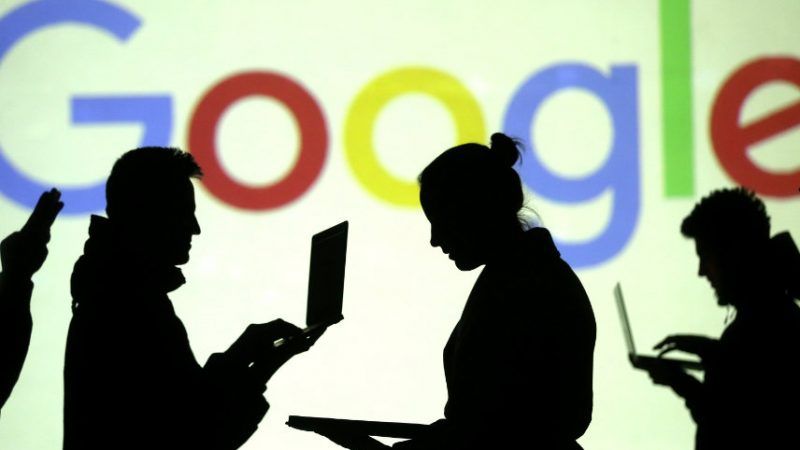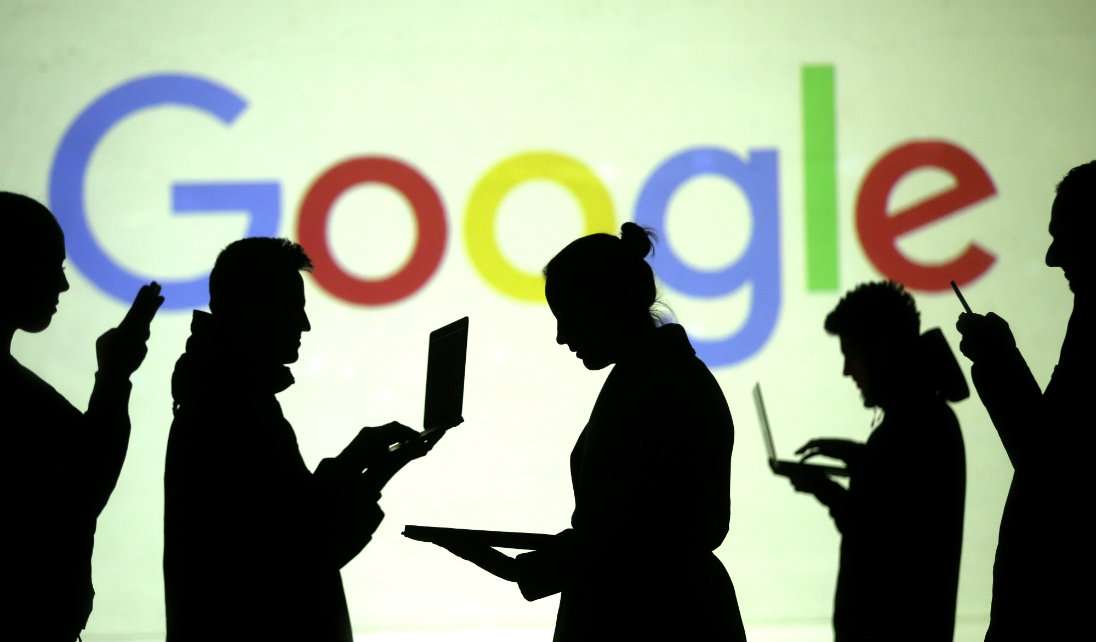Don't Look to the State to Keep Social Media Companies From Imposing Ideological Conformity
Facebook, Google, and Twitter may be smug and presumptuous, but we can go elsewhere.


Many giant tech companies that were among the biggest supporters of so-called net neutrality have increasingly turned out to be enthusiastic suppressors of content when left to their own devices. But don't look for help to government agencies for help—not unless you want to empower authorities in a long and well-documented effort to muzzle officially disapproved speech. Instead, people who want to speak freely should actively seek out alternatives that let them do just that.
Google-owned YouTube recently prohibited users from uploading firearms-related videos that, among other things, offer "instructions on manufacturing a firearm, ammunition, high capacity magazine, homemade silencers/suppressors, or certain firearms accessories such as those listed above." Little, if any of that is inherently illegal—certainly no more so than many other activities, such as picking locks or altering and ID, both of which feature on the video-sharing service. But firearms are controversial in the wake of the Parkland shooting and the subsequent surge in political activity by opponents of self-defense rights. That is, YouTube is banning videos because of the ideas they represent.
This wouldn't be the first time, of course. YouTube has implemented a policy against "hate speech"—a grab-bag category that includes vile stuff, such as explicit racism, but which is so amorphous that it can easily encompass anything that raises a moderator's hackles. "There is a fine line between what is and what is not considered to be hate speech," YouTube acknowledges, and the company ended up apologizing after newly hired staff pulled the plug on right-wing videos and whole accounts that didn't violate anything other than somebody's sense of propriety.
Ditching "hate speech" became a popular goal for tech companies last summer, after lethal political violence in Charlottesville, Virginia. To that end, Twitter—which once described itself as "the free speech wing of the free speech party"—implemented a creepy Trust and Safety Council to "ensure that people feel safe expressing themselves on Twitter." Inevitably, that resulted in a purge of not just open bigots, but also people with edgy politics or trollish behavior.
Facebook, which warns that speech that "attacks people based on their actual or perceived race, ethnicity, national origin, religion, sex, gender or gender identity, sexual orientation, disability or disease is not allowed" ran into its own trouble trying to parse among vigorous debate, run-of-the-mill meanness, and forbidden hate speech. ProPublica reviewed more than 900 posts alleged to violate such content rules and found that Facebook's "content reviewers often make different calls on items with similar content, and don't always abide by the company's complex guidelines." In response, the social media giant noted the difficulty in distinguishing between hateful and heated in "content that may be controversial and at times even distasteful" but which "does not cross the line into hate speech."
Such subjectivity means that people moderating speech must necessarily bring their own judgment to the project—including biases that can go unchallenged in an industry that has a growing reputation for being ideologically monolithic. Earlier this year, the Lincoln Network, a "community of tech professionals devoted to building alliance of liberty and technology," released a survey of Silicon Valley tech workers. "Survey respondents, regardless of their own ideological views, overwhelmingly characterized their workplaces as liberal or very liberal."
Gizmodo reported in 2016 that "Facebook workers routinely suppressed news stories of interest to conservative readers from the social network's influential 'trending' news section." There's no indication that this was official policy—rather, it was the consequence of workers marinating in the shared set of preconceived notions of "a small group of young journalists, primarily educated at Ivy League or private East Coast universities."
Where official policy does come in is tech companies openly collaborating with governments to censor speech.
Last week, former Google manager William Echikson wrote that his old employer has shifted from efforts in favor of free speech to trying "to convince authorities in Europe and elsewhere that the internet giant is serious about cracking down on illegal content. The more takedowns it can show, the better." He added that out of eagerness to comply with increasingly draconian directives to suppress unpleasant and inconvenient messages, "legal content is being censored."
Germany introduced a new Internet censorship law last year which requires cooperation from social media companies, and France and the UK are also tightening their online efforts against "hate speech."
Picking up on our own President Trump's insistence that hostile media outlets should be punished for spreading "fake news," Malaysia plans prison terms for spreading "fake news" as defined by government officials.
And online publishers across the United States are busy shutting down sexually related online forums and even personals out of fear of the legal penalties against "sex trafficking" in the FOSTA bill.
That's a big reason why we shouldn't look to governments for solutions to the problem of social media companies imposing ideological conformity. It's annoying when a social media site sidelines your politically incorrect post or boots you for an off-color joke. But when government agencies exercise muzzling power, they impose fines and jail time.
Governments may not target speech for the same reasons as tech-industry smugsters, but they do so vigorously, and with nastier tools.
Social media users who seek unhampered discussion need to support alternatives to the current complacent giants, and to encourage the creation of alternatives. Some gun enthusiasts now post videos to Pornhub (so extremely NSFW)—a one-stop-shopping opportunity that's apparently working well as of today. And Full30 is a shooting-specific video host intended to fill the role that YouTube doesn't want.
MeWe and Minds.com are just two of the hopefuls competing for Facebook refugees. Gab offers an almost seamless transition from Twitter, tempered by the fact that actual Nazis landed there first after being booted from other platforms. But if the current user base is a tad more repulsive than that of the competition, the management's free-speech advocacy enhances the place's potential—and an influx of regular people would address many concerns.
That's true of all alternatives to the established tech giants. These giants grew to their current size by offering what people wanted. If the politically charged speech suppression they now peddle is not what the public is looking for, people should vote with their patronage by shifting to the competition.


Show Comments (118)